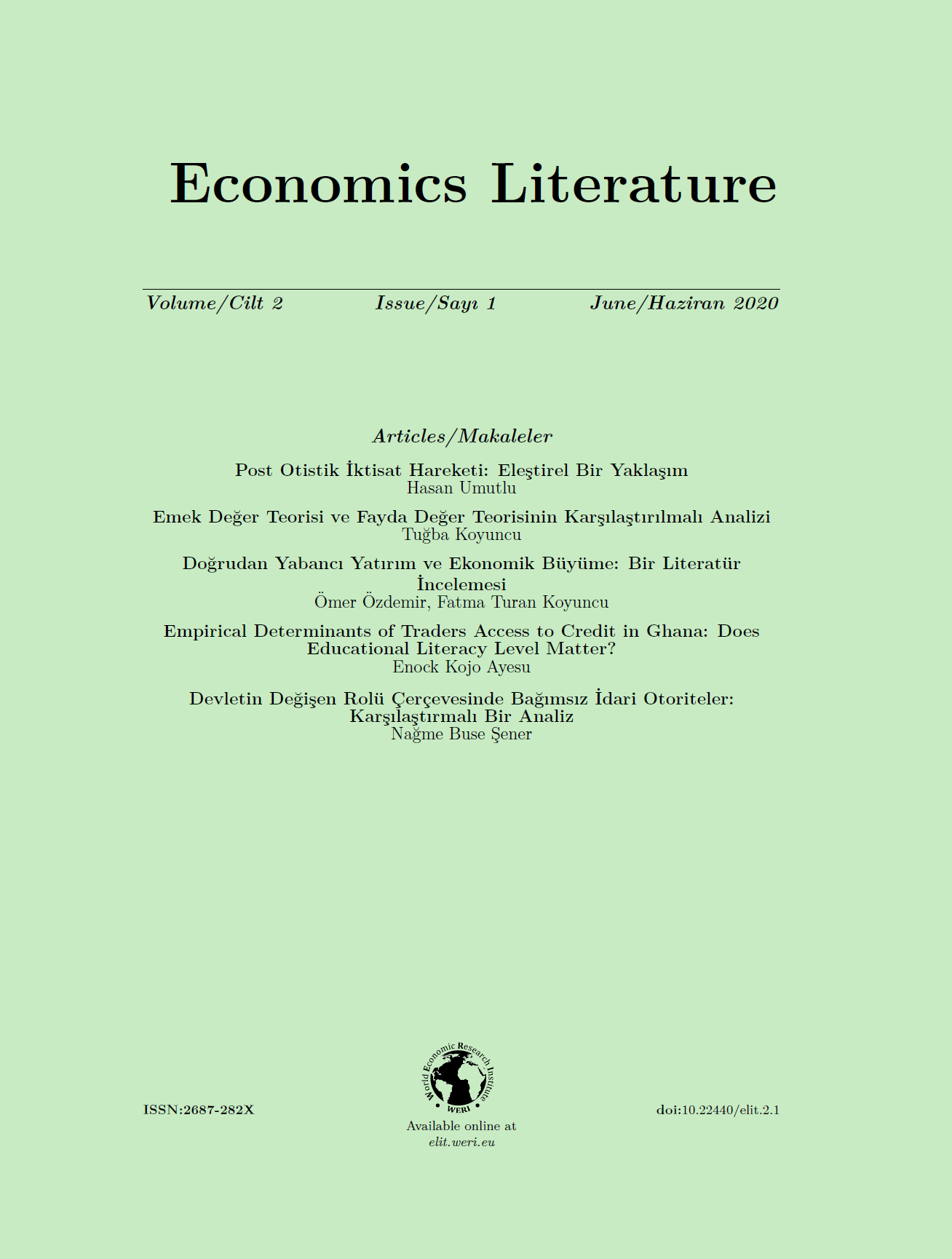
Economics Literature
Yazarlar: Solomon Antwiagyei Kuffour, George Adu
Konular:-
Anahtar Kelimeler:Financial Literacy,Trust,Direct Share ownership,Stock Market participation
Özet: Financial markets and products have increasingly become complicated as a result of the influx of financial products hence consumers are now required to make complex financial decisions about their day to day investment decisions, portfolio choice and future financial planning. To make an informed decision, a considerable level of financial literacy and trust is required. Globally, households are encouraged to take a more active approach to personal finance. However, the success depends largely on the level of financial literacy of the individual. Again, global evidence of stock market non-participation puzzle has warranted several studies to ascertain what explains the phenomenon. For this reason, this paper examines the impact of financial literacy and trust on stock market participation and also ascertains if there exists any gender gap in financial literacy and share ownership. Using survey data on a sample of 398 respondents, there was an evidence of low financial literacy levels. The probit regression results show that less financially literate investors are significantly less likely to invest in stocks if socio-demographic characteristics and risk attitudes are accounted for. However, the individual’s subjective level of trust in the stock market has no explanatory effect on the individual’s decision to invest in stocks. Hence, financial literacy partly explains the non-participation puzzle in financial literacy and stock market participation. It is also found that financial literacy is affected by one’s level of education and access to financial information, hence financial literacy programs should be given much attention especially through the use of electronic media.